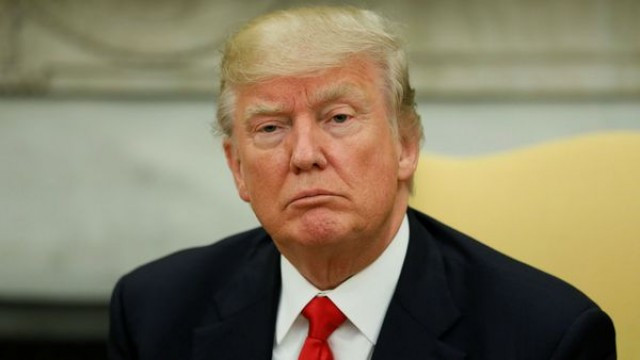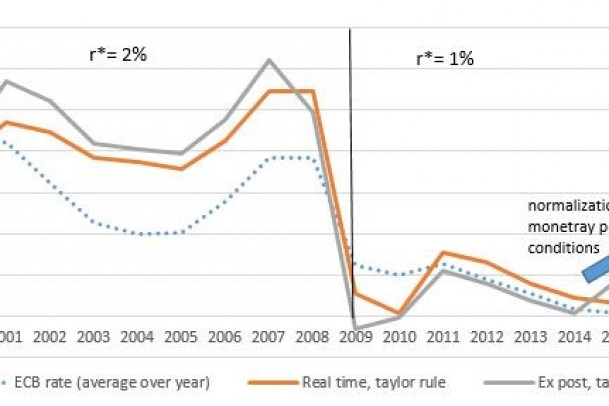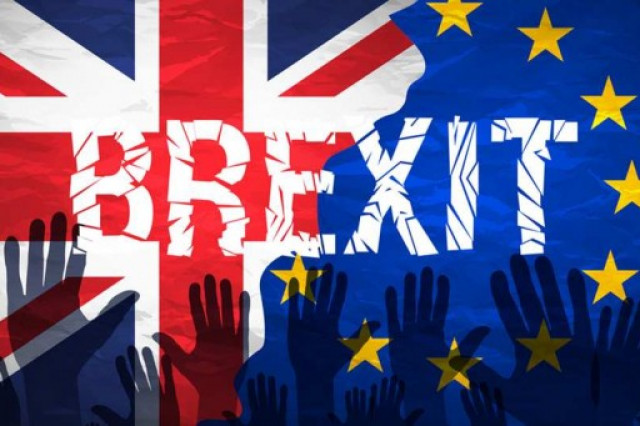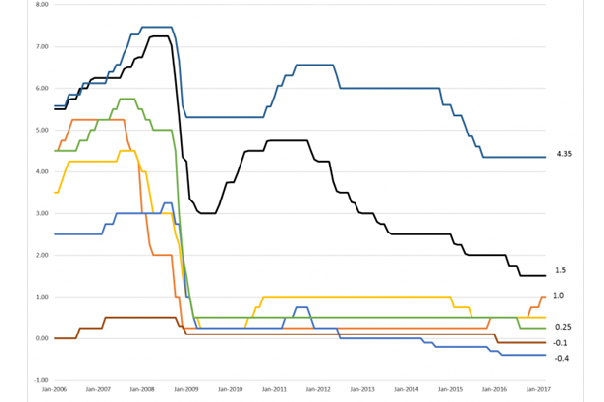The return of protectionism is evident in political discourses. Certainly, the election of Donald Trump is paradoxical, since he has pronounced himself of a marked protectionist bent (defending, among others, both the limitation of the geographical mobility of workers and the freedom of merchandise).

This symbolism was an announcement of his first steps to end the Transpacific Association Free Trade Agreement (TPP). That would have united 12 Pacific basin countries. We observe that Europe is not far behind in terms of protectionism. We see it in the rise of right-to-left sovereignists in France, Marine Le Pen and Jean-Luc Mélenchon, and in almost all our other European Union members. The chapter of the trade agreement between the EU and Canada is significantly above and beyond Wallonia's blockade.
As we can see from the different published surveys that have been compiled in this book, there has been a reversal in earlier favourable statements on free trade and so it is significant to recognize that liberalisation projects face the hostility of a large sector of the public opinion.
Protectionist decisions are proliferating and the OECD, in its economic perspective published on November 28th. 2016, gives a revealing example of the explosion of restrictive trade measures since the 2008 crisis in the G20 countries. Protectionism is growing in reality, not just in discourses.
For the detractors of protectionism, understanding the reality of this protectionism without nationalist bias, protectionism would further reduce growth and increase unemployment, emphasizing that history has shown that withdrawal was synonymous with international tensions and conflicts.
Despite Trump's constant criticism of the media, his triumph for many analysts was not surprising, adding that during the campaign, voters did not reveal their intentions to vote. Thus underestimating Trump's actual possibilities.
NO RISK OF INTERNATIONAL CURRENCY WAR
From an economic perspective, Trump has advocated an aggressive fiscal programme, with increased spending on infrastructure, which could generate a short-term beneficial effect on growth. From a commercial perspective, the establishment of trade barriers could lead to retaliatory measures, which would be detrimental to the US and to international trade.
This retaliation exists when one Country applies the same restriction as this to the other, acting in detriment to the latter's interests. Self-remedy is the most moderate way to react, when responding to an unfriendly but lawful act within the Public International Law.
According to the IMF, despite Trump's discourse, there is no risk of the advent of an international currency war, emphasizing that it would continue in the defence of free and fair trade. Markets do seem be fearful. The American Congress is characterized by its pragmatic nature, acting against interests that appear to be against the country's interests, however with the controversial Trump, a political "outsider", representative of speculation in the years of economic abundance thanks to real estate investments, no-one knows where he is heading.
As for his idea of expelling more than 11 million undocumented immigrants, we would have to assess the negative impact that this measure could have on the labour market.
Attempting to provide solutions or scenarios to get out of the worst economic crisis of recent decades, with exacerbated liberalism aided by a deregulated financial system and with the social-democratic Left losing influence in the major developed countries, there are apparent changes in paradigms and visions of how the policy has been seen so far. Americans, in the midst of this crisis, have also been less and less favourable to free trade.
Trump's proposals are controversial as to why they want to impose tariffs on Chinese imports, but the two candidates for the Democratic nomination, Hillary Clinton and Bernie Sanders, were also against the Trans-Pacific Agreement on Economic Cooperation (TPP) signed by George Bush in 2005.
Protectionism, as we see it, is now deeply rooted in political discourse. For example, in 2008, during the race for the Democratic nomination, Barack Obama pledged to renegotiate the free trade agreement between Colombia and the United States (TLC) after the postponement of its approval by Bush in April 2008. The Republican candidate John McCain stated that he would be in favour of the treaty, while the Democrat Barack Obama expressed his reservations, indicating that this treaty did not seem appropriate given the violations of human rights in Colombia, but later had to qualify himself by underscoring the importance of Colombia to the US and committing to a study to modify some aspects of the treaty, until it was finally approved in 2011.
DEMOCRATS AND REPUBLICANS DISENGAGE FROM FREE TRADE
According to the opinion of the American political analysts consulted, in the last decades, Republicans were more favourable to free trade, while the Democrats spoke in their discourses more favourably of protectionism. In the campaign for the November 2016 elections, both have openly opposed or criticized the current free trade situation.
Analyzing protectionism in its economic, commercial and political dimensions, and from the point of view of political communication, provides a polyhedral view since it is a poorly-described issue at the political level, an unresolved issue on how globalisation is governed when we are in a state of discomfort and social fragmentations that is undermining the political party system as we know it in the West.
In discourses favourable to the protection of employment in certain sectors, limiting competition and the trade deficit, we also see the discourses that warn of the disadvantages for the economy in the reduction of the variety of products available, their prices and other issues derived from theory of comparative advantage, with a stagnation in innovation.
To avoid the drawbacks of extreme liberalism or protectionism, joint policies were sometimes adopted, sometimes in favour of free trade, particularly in sectors where they have an advantage, and sometimes in favour of protectionism, in the areas under development or are considered strategic.
In the face of an economic crisis that Europe and the Western world, in general, are not waking up from, with increasingly precarious employment and paradigm shifts, with a social democracy that has not been strong enough to challenge neoliberalism, trying to find again its frameworks and its space in face of rising populism both from left and right, protectionism is camouflaged terminologically, with much ambiguity in many current discourses, but using concepts considered less of a taboo.
In 2017, we now see that this has become an international trend, not limited to any one country, and protectionism has gained adepts when used as a discursive resource for the protection of the economy in defence of our own industries, so that, after the crisis, we can "open up to outsiders". Liberalism presents itself as anarchy, with politics subordinated to the swings of markets, deepening the exclusion of the globalizing logic, with economies going at different speeds and in a current situation of widespread stagnation.

WE ARE WITNESSING A NEW INTERNATIONAL ORDER
The protectionism that wins is not the nationalist one, who strives to present differences of identity, culture, religion or , even if there are certain nationalist colours, but rather the vision of challenge that encloses economic protectionism is what generates a certain consensus among the leaders of all political persuasions.
There we see the Socialists Montebourg and Hamon constantly defending "economic patriotism", in a situation of constant ideological breach in European Social Democracy, with many discordant voices against globalisation despite the official positions in favour of it, echoing their political parties' posture in different countries.
In everything touched upon in this book, in which there have been references to protectionist measures adopted such as the Alstom decree in France and the suspicions created in Brussels, it is significant to keep evaluating the costs of protectionism when it is presented as the only solution to neoliberalism, without an alternative third way, and being aware that there is risk associated with protectionism, by asking questions such as: We are we protecting ourselves from? Against what are we protecting ourselves?, rejecting the framework of international cooperation as we understand it so far.
In this scenario, we are witnessing a new international order in which there will be a rethinking of the fit of the extinct nation-states. Protectionism will play a more prominent role in the context of counting on greater interventionism or welfare economics on the economy of the market, with social democracy defying neoliberal capitalism that will seek again its own space and with a Centre-right, with the same internal divergences around the economic model to defend, with the British Right in favour of Brexit, the current controversies about CETA and the international context resulting from Trump's conservative protectionism.









